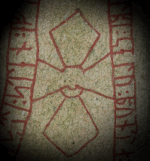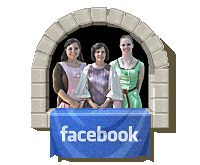



This event brought to you by
|
 |

 |



 Viking Age
Viking Age
This period began on June 16, 793 when Norsemen attacked the abbey on Lindisfarne, England. It ended in the early 1000's. During this long period, the seafaring Scandinavia warriors used long ships to raid, trade and establish colonies across Europe, and scholars believe even made it as far as North America. Typically portrayed by europeans as bloodthirsty savages, the Norse were in fact proud warriors and traders from Norway, Denmark and Sweden with a high value for honor.
Vikings are a very curious historical phenomenon, one that has been the source of much debate among scholars. When we think of Vikings, they tend to be covered in leather and fur, standing at the bow of a wooden longship, waving their battleaxes and yelling with the fury of Odin. In reality, however, Vikings had quite a bit more to them than our modern stereotype. The men from the North, or Norsemen, did not always raid, pillage, and plunder like we imagine. In fact, Vikings began as tradesmen, traveling widely across Europe and possibly even into Asia. Starting in the late 8th century, Vikings called to their usual ports, but instead of trading they attacked them. In England, the first recorded Viking raid was on the monastery in Lindisfarne in AD 793. Everyone was shocked at the sudden change in the behavior of the Norsemen, and the reasons for this change are the subject of great debate amongst historians.
Pillaging religious communities was very common because they held a great deal of wealth and were often located on the outskirts of settled areas. Many monasteries were built on islands off the coast of mainland England and Ireland to help the monks separate themselves from society and live a prayerful, private life. While it was not uncommon for warring Christians to pillage each others' churches and monasteries to prove a point, pagan Vikings laying claim to Christian goods was a different matter entirely. This led many European Christians to believe that God was punishing them for their crimes, adding a whole new level of meaning to the success of Viking raids against Christian communities.
Many theories circulate about what caused Vikings to begin raiding instead of continuing to trade. Some believe that their successful merchant careers were never genuine, and that they used their status as merchants to do reconnaissance for their impending plundering. Others believe that one day the Norsemen decided raiding would be a much easier and faster road to wealth than trade. A third group of thought maintains that raiding developed as a result of drastic changes in Norse society, which was rapidly growing larger and more complex. To gain wealth and move up into the new social rankings that were now available, many young Norsemen went out on vikings, their verb describing the act of leaving to go raid.
Over the course of the next century, Vikings built a fearsome reputation across Europe. In the British Isles, they began raiding only seasonally, usually returning home for the winter. Not too far into their newfound career, however, Vikings began establishing bases in England and Ireland from which they could raid further inland. The cities of Dublin and Wexford in Ireland began in such a way. Whatever the reason for Viking raids, the Norsemen left such an impact on their European contemporaries that to this day we are left with only the fear-instilling image of crazed warriors heading mercilessly toward our wealth.
The Rabbit Hole:
Nationalmuseet (National Museum of Denmark): The Viking Age
JORVIK Viking Centre: The Vikings
University of Oslo: Museum of the Viking Age
Chronicle - Medieval History Documentaries: Norsemen: The Complete History Of The Viking Age | Last Journey Of The Vikings [YouTube]
|
 |
|

See MORE on our Links Page!

|





























